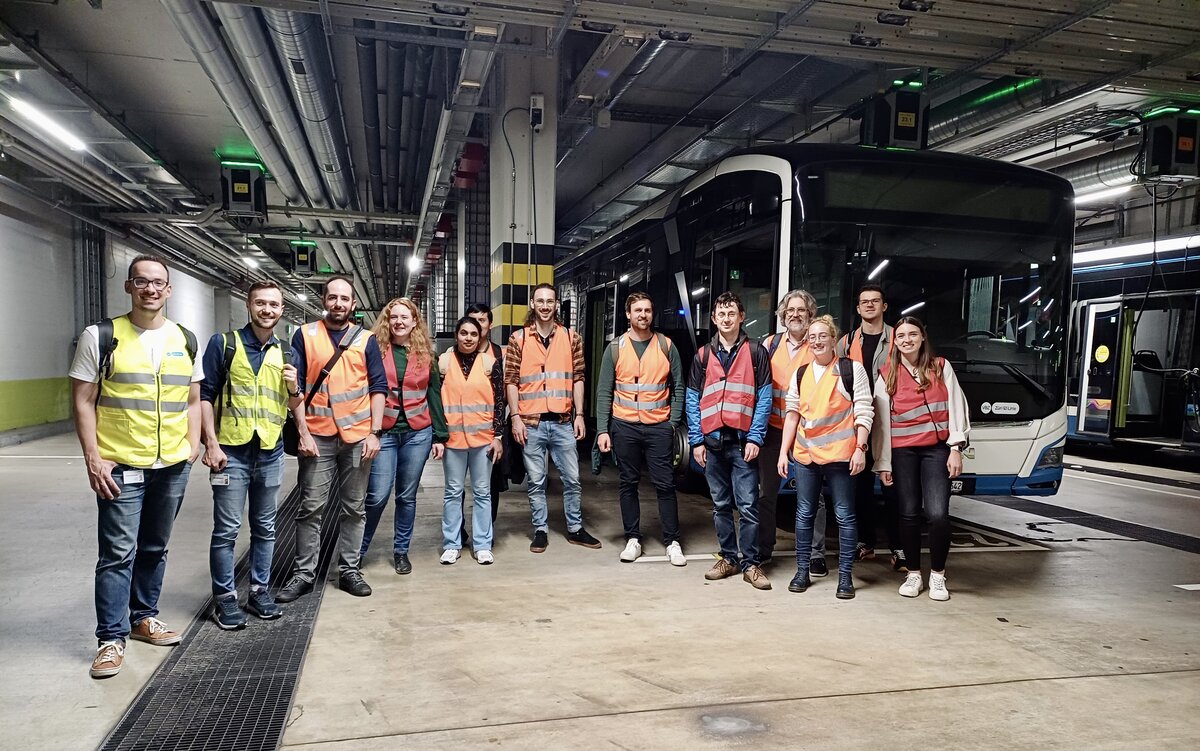Intelligent charging of electric buses
(Issue 4 / 2024) In local public transport, many diesel buses are currently being replaced by electric buses. However, electric bus fleets are still largely operated without optimised charging load management. This is where the FreeE-Bus research project comes in.

Public transport is changing: many diesel buses are being replaced by electric buses, although the operation of electric bus fleets is still largely without optimised load management. The Interreg-AHB project FreeE-Bus is working on developing a charging load management tool that generates optimised control signals for the charging infrastructure based on current timetable, weather and energy grid information.
Why charging load management?
Load management uses the flexibility of both the charging infrastructure and the electric buses to shift the charging of the necessary electrical energy to times of low load, for example. Intelligent load management can thus support grid stability by preventing overloads of the power grid. Renewable energy generated by locally installed PV systems or time-dependent electricity prices can also be optimally integrated. In addition, charging management can help extend battery life if the batteries are used sparingly, which reduces maintenance and replacement costs.
In the Interreg-ABH project FreeE-Bus, the relevant system parameters and the current system status of an electric bus fleet are utilised to develop a future-ready charging management system, bringing a range of benefits: cost-effective integration into the energy grid, minimisation of costs (both investment and operation), climate protection, and as independent an energy supply as possible.
Excursion and Presentation of Initial Results at Verkehrsbetriebe Zürich
The focus of the excursion to Verkehrsbetriebe Zürich (VBZ) on 3 July 2024 was the bilateral exchange regarding the progress made in the cross-border collaboration. Prior to the visit, VBZ provided anonymised monitoring and planning data from their electric bus fleet, which included, among other things, time, position, and speed information. FHV subsequently processed this data, and the project partner Ravensburg-Weingarten University of Applied Sciences (RWU) applied a reconstruction method for speed and gradient profiles based on low-frequency GPS route data. These profiles enabled RWU, after developing a map-based longitudinal dynamics simulation model, to simulate the energy consumption of an electric bus during operation. The simulation was verified using the real-world data from VBZ.
During the excursion and on-site visit to the VBZ operations and maintenance depot, the progress made was discussed, and the initial results from FHV and RWU were presented. The FHV model calculations based on VBZ data indicated, among other things, that the charging infrastructure does not yet constitute a bottleneck. Comparing simulations of current charging loads with optimised variants developed by FHV showed a significant reduction in peak load. This could lead to notable savings and cost reductions for VBZ, particularly in terms of power charges.
Cross-Border Research Cooperation
The regular exchange of experience and knowledge among project and associated partners makes an important contribution to modelling e-bus systems within the FreeE-Bus project. The project’s objective is to support and advance the electrification of public transport in the Lake Constance region. Another knowledge transfer workshop was held on 9 October 2024 at RWU.
